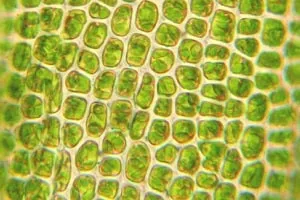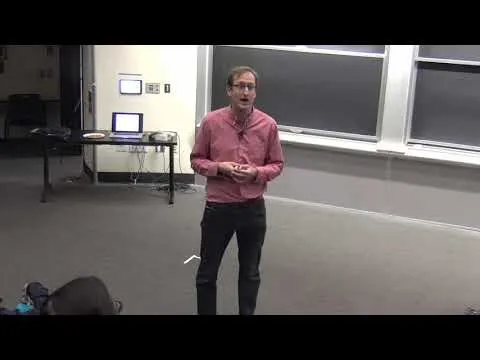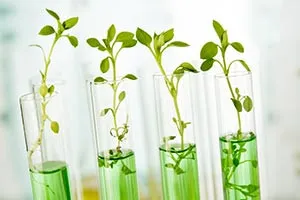
Diploma in Plant Cell Bioprocessing 
Discover the fascinating world of plant cell bioprocessing with this free online course! Learn about the essential components of plant cells and their applications in technology. Explore the history of plant cells and tissue culture analysis, as well as the nutritional requirements for plant growth. Dive into the concepts of organogenesis and regeneration, and understand their significance in biotechnology and organ development. Uncover the roles of primary and secondary metabolites in plant metabolism, and explore potential commercial plant products. Gain insights into the production of compounds from plant cell culture and the concept of biotransformation. Don't miss this opportunity to expand your knowledge in biology, genetic engineering, and biotechnology! ▼
ADVERTISEMENT
Course Feature
![]() Cost:
Cost:
Free
![]() Provider:
Provider:
Alison
![]() Certificate:
Certificate:
No Information
![]() Language:
Language:
English
Course Overview
❗The content presented here is sourced directly from Alison platform. For comprehensive course details, including enrollment information, simply click on the 'Go to class' link on our website.
Updated in [September 26th, 2023]
What does this course tell?
(Please note that the following overview content is from the original platform)
This free online course in plant cell bioprocessing primarily explains the functionalities of the essential components of plant cells and the applications of plant cell technology. You will learn about the history of plant cells and tissue culture analysis as well as the nutritional requirements of plant cells that aid plant growth. Study the concepts of ‘organogenesis’ and ‘regeneration’, understanding their significance in plant cell biotechnology and organ development.
Next, the primary and secondary aspects of plant metabolism will be examined. You will be able to distinguish the roles of primary and secondary metabolites, identifying their ecological functions in plants. The various plant products of potential commercial interest will also be highlighted. Thereafter, the steps involved in the production of compounds from plant cell culture will be outlined and you will consider the medium components that limit cell division and stunt the exponential growth of plant cells.
Finally, you will study the concept of ‘biotransformation’ in plant cell cultures. The relevance of genetic transformations, and the properties and functionalities of plant cell bioreactors will also be explained. Then analyze case studies that feature the success of the implementation of the strategies involved in plant cell technology. This course will be of interest to anyone in the fields of biology, genetic engineering, biotechnology and any other related discipline.
We considered the value of this course from many aspects, and finally summarized it for you from two aspects: skills and knowledge, and the people who benefit from it:
(Please note that our content is optimized through artificial intelligence tools and carefully reviewed by our editorial staff.)
What skills and knowledge will you acquire during this course?During this course, learners will acquire the following skills and knowledge:
1. Understanding of the essential components of plant cells and their functionalities.
2. Knowledge of the history of plant cells and tissue culture analysis.
3. Understanding of the nutritional requirements of plant cells for growth.
4. Familiarity with the concepts of organogenesis and regeneration in plant cell biotechnology and organ development.
5. Differentiation between primary and secondary metabolites in plant metabolism and their ecological functions.
6. Identification of plant products with potential commercial interest.
7. Knowledge of the steps involved in the production of compounds from plant cell culture.
8. Understanding of the medium components that limit cell division and stunt the exponential growth of plant cells.
9. Understanding of biotransformation in plant cell cultures.
10. Knowledge of genetic transformations and their relevance in plant cell technology.
11. Familiarity with the properties and functionalities of plant cell bioreactors.
12. Analysis of case studies showcasing successful implementation of plant cell technology strategies.
Who will benefit from this course?
This course will benefit individuals in the fields of biology, genetic engineering, biotechnology, and any other related discipline. Specifically, professionals working in plant cell bioprocessing, plant cell technology, and plant biotechnology will find this course valuable. It will also be beneficial for researchers, scientists, and students interested in understanding the functionalities of plant cells and their applications in various industries. Additionally, individuals involved in the production of compounds from plant cell culture, such as pharmaceutical companies or agricultural companies, will benefit from this course.
Course Syllabus
Plant Cell Technology
In this module, the relevance and possible applications of Plant Cell Technology in industries are discussed. You will study the history of plant cell culture, its basis and the factors affecting plant cell cultures. The anatomy of plant cells, their properties and the processes involved in photosynthesis and photorespiration will also be highlighted.Plant Development
This module features the different forms of Cultures which are currently in use and their applications in Plant Biotechnology. You will also learn about the nutritional requirements of plant cells as well as the properties of Organogenesis, Regeneration and Micropropagation.Plant Metabolism
In this module, the stages of Embryogenesis and the applications of Protoplast Culture are explained. You will also study the significance of Plant Metabolism and the commercial applications of Plant Cell Technology.First Assessment
This assessment enables you to review your learning so you can determine your knowledge and understanding of the first three modules of the course.Biotransformation and Genetic Transformation
This module outlines the processes involved in Biotransformation and the applications of Plant Cell Immobilization. You will also understand the relevance of genetic variations in the cultivation of plant cells and the processes involved in Genetic Transformations.Plant Cell Bioreactors
In this module, you will learn about the factors that influence the design of Plant Cell Bioreactors as well as their various modes of operation. Some case studies that feature the success of the implementation of the strategies involved in plant cell technology are also discussed.Plant Cell Culture
In this module, you will learn about the requirements for Plant Cell Cultivation and the processes involved in the production of compounds from Plant Cell Culture. You will see the effects of culture conditions on plant cells as well as the conditions that are essential for the cessation of exponential plant growth.Second Assessment
This assessment enables you to review your learning so you can determine your knowledge and understanding of the last four modules of the course.Course assessment
Course Provider

Provider Alison's Stats at AZClass
Discussion and Reviews
0.0 (Based on 0 reviews)
Explore Similar Online Courses

Treating Cognitive Distortions using CBT

Special Needs School Shadow Support

Python for Informatics: Exploring Information

Social Network Analysis

Introduction to Systematic Review and Meta-Analysis

The Analytics Edge

DCO042 - Python For Informatics

Causal Diagrams: Draw Your Assumptions Before Your Conclusions

Whole genome sequencing of bacterial genomes - tools and applications

12 Genetics 1 : Cell Division & Segregating Genetic Material
![[LIVE] Learn Genetic Engineering - Part 1: How does it work?](/ccsimg/dcs/img_tools/6b8f615b15bbd31a67f1880c9bd53dd0.webp)
[LIVE] Learn Genetic Engineering - Part 1: How does it work?


Start your review of Diploma in Plant Cell Bioprocessing